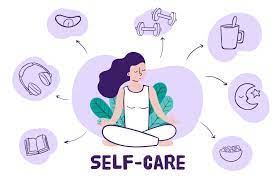MDD, or major depressive disorder, is a mental illness that can cause a wide range of symptoms. It is one of the most common mental health conditions in the United States, and it affects people of all ages. In this blog post, we will take a look at what MDD is, its symptoms, and how it is diagnosed. If you think you may be suffering from MDD, it is important to seek help from a qualified professional.
Contents
What Is MDD?
 MDD is a psychiatric disorder that is characterized by a persistent feeling of sadness or emptiness. It can also cause feelings of hopelessness, irritability, and fatigue. People with MDD may also have difficulty concentrating, making decisions, and remembering things.
MDD is a psychiatric disorder that is characterized by a persistent feeling of sadness or emptiness. It can also cause feelings of hopelessness, irritability, and fatigue. People with MDD may also have difficulty concentrating, making decisions, and remembering things.
MDD refers to Major Depressive Disorder, and it is a mental illness that needs to be treated with professional help. It’s important to understand the symptoms of MDD because it is a serious disorder that can negatively affect every aspect of a person’s life. Many people who suffer from MDD don’t seek help because they feel embarrassed or ashamed.
It’s important to remember that MDD is a medical condition, and there is no shame in seeking help. Because if you don’t seek help, the symptoms of MDD will only get worse. So reach out to a mental health professional who can diagnose MDD and provide the treatment that is necessary for a full recovery.
More often, people should consult with their doctor or a mental health professional if they have been feeling down, hopeless, or empty for more than two weeks. If you are experiencing any of the symptoms of MDD, don’t wait to get help. The sooner you seek treatment, the better your chances are of making a full recovery.
How To Do MDD Diagnosis?
The MDD diagnosis is done by following a complete method. This include:
- Clinical interview: In this, the doctor will ask about your symptoms and how long you have been experiencing them.
- Medical history: The doctor will ask about your medical history, including any mental health conditions that run in your family.
- Psychological evaluation: The doctor will give you a psychological evaluation to rule out other mental health conditions.
- Laboratory tests: The doctor may order laboratory tests to rule out other physical health conditions.
- Imaging tests: The doctor may order imaging tests to rule out other physical health conditions.
- Self-report symptom scale: It is common for the doctor to ask you to fill out a self-report symptom scale, such as the Beck Depression Inventory.
After the doctor has completed all of these steps, they will make a diagnosis based on the criteria outlined in the Diagnostic and Statistical Manual of Mental Disorders (DSM).
The DSM is a handbook that is used by doctors to diagnose mental health conditions. To be diagnosed with MDD, you must meet the following criteria. You must have experienced five or more of the following symptoms for at least two weeks:
- Depressed mood most of the day, nearly every day
- Markedly diminished interest or pleasure in all, or almost all, activities most of the day, nearly every day
- Significant weight loss when not dieting or weight gain, or decrease or increase in appetite nearly every day
- Insomnia or hypersomnia nearly every day
- Psychomotor agitation or retardation nearly every day
- Fatigue or loss of energy nearly every day
- Feelings of worthlessness or excessive or inappropriate guilt nearly every day
- Diminished ability to think or concentrate, or indecisiveness, nearly every day
- Recurrent thoughts of death, recurrent suicidal ideation without a specific plan, or a suicide attempt or specific plan for committing suicide
If you or someone you know is experiencing these symptoms, it is important to seek professional help. MDD is a treatable disorder, and there are many effective treatments available. With proper treatment, most people with MDD can recover and live happy and productive lives.
Is MDD A Lifelong Diagnosis?
 Sometimes, people seem to improve and then have a relapse of MDD. It is important to note that MDD is not simply a lifelong diagnosis. In order for someone to be diagnosed with MDD, they must have had at least one major depressive episode in their lifetime.
Sometimes, people seem to improve and then have a relapse of MDD. It is important to note that MDD is not simply a lifelong diagnosis. In order for someone to be diagnosed with MDD, they must have had at least one major depressive episode in their lifetime.
An episode of depression is characterized by having five or more symptoms present for two weeks or more. These symptoms must include a depressed mood or loss of interest in activities that were once enjoyed. Other common symptoms include:
- Weight changes
- Sleeping difficulties
- Fatigue
- Problems with concentration
MDD diagnosis is made by a mental health professional after a comprehensive evaluation. This evaluation will include taking a thorough medical history and performing a mental health assessment. The mental health assessment will typically involve questions about your mood, thoughts, and behaviors.
A lifelong diagnosis is generally given when an individual has had multiple episodes of MDD. However, it is possible to have MDD and only experience one episode in your lifetime.
If you are experiencing symptoms of depression, it is important to seek professional help. Depression is a treatable condition and there are many resources available to help you on your journey to recovery.
How Can You Manage MDD?
MDD is a serious and potentially debilitating condition, but there are treatments available that can help. If you think you may be suffering from MDD, it’s important to see a mental health professional for an evaluation. There are several different types of treatment for MDD, including:
Psychotherapy
This is also known as talk therapy. A therapist can help you understand your condition and develop coping mechanisms to deal with the symptoms. Psychotherapy is often used in combination with other treatments, such as medication. This involves meeting with a therapist regularly, usually once or twice a week. It will help you understand your thoughts, feelings, and behaviors.
Medication
There are several different types of medication used to treat MDD. These include antidepressants, anti-anxiety medications, and mood stabilizers. Medication can be very effective in treating the symptoms of MDD, but it’s important to work with a mental health professional to find the right medication and dosage. Medications are often combined with therapy to maximize treatment.
Light therapy
This involves exposure to artificial light. It is often used in the winter when there is less natural sunlight. Many people with MDD find that their symptoms improve with light therapy. As it works through a different mechanism than antidepressants, light therapy can be used in combination with medication. Because it is a relatively safe and low-cost treatment, it is worth considering if you are struggling with MDD.
Electroconvulsive therapy (ECT)
This is a more controversial treatment for MDD. It involves passing electrical currents through the brain to induce a seizure. ECT can be an effective treatment for people who have not responded to other treatments. However, it can have significant side effects, including memory loss. Therefore, it is usually only used as a last resort.
Self-care
 Along with medication, self-care is an important part of treatment for MDD. Taking care of yourself physically can help improve your mood and energy level. Exercise, eating a healthy diet, getting enough sleep, and avoiding alcohol and drugs can all help. It’s also important to take care of yourself emotionally. This means learning how to deal with stress, setting realistic goals, and spending time with supportive people.
Along with medication, self-care is an important part of treatment for MDD. Taking care of yourself physically can help improve your mood and energy level. Exercise, eating a healthy diet, getting enough sleep, and avoiding alcohol and drugs can all help. It’s also important to take care of yourself emotionally. This means learning how to deal with stress, setting realistic goals, and spending time with supportive people.
If you have MDD, it’s important to seek treatment as soon as possible. Treatment can help you feel better and function more normally. If you think you may have MDD, talk to your doctor or mental health professional. They can do an evaluation and make a diagnosis. With treatment, most people with MDD improve.
Conclusion
To conclude, MDD diagnosis is an essential part of understanding and treating the condition. It is important to be aware of the symptoms of MDD, as well as the different types of MDD, to get the most accurate and effective treatment possible. If you or someone you know is experiencing any of the symptoms mentioned above, it is important to seek professional help.
There are several different types of treatment available for MDD, and it is important to work with a mental health professional to find the best course of treatment for you. You can also contact Therapy Mantra for more information and guidance about MDD. Our team of mental health professionals is here to help you every step of the way. Mental health is essential for everyone.
If you or someone you know is struggling, please reach out for help. Talking to a therapist can make all the difference. Contact us today to get started on your journey to recovery. You can also book an online therapy session or download our free Android or iOS app.


